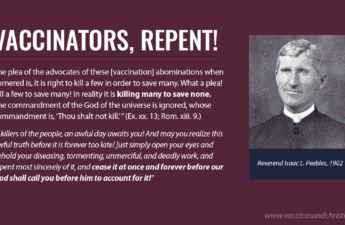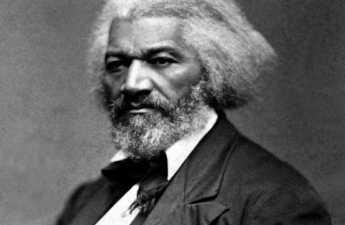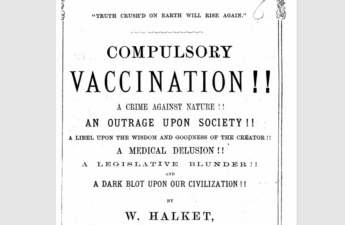
and once in a public meeting the late Minister said, that some people seemed to have but one clear and unmistakable belief—that was in
the ‘immaculate cow.'”
— New Amsterdam Gazette, 1890
“According to [Abraham] Kuyper, Keuchenius was a man who had acted with remarkable piety and integrity in his political activities.”[1]
Levinus Wilhelmus Christiaan Keuchenius (1822-1893) was a Christian statesman, serving as Minister of the Colonies in the Netherlands. An 1890 edition of the New Amsterdam Gazette states the following about Keuchenius:
The late Minister of the Colonies is a Dutch Reformist of pronounced orthodoxy and piety, and a man who carries his religious convictions into political and daily life. He is also an ardent admirer and adherent of Dr. Kuyper, who was formerly a clergyman, and is now the real leader of the Anti-Revolutionary party, which name itself fairly requires explanation did space allow. With Dr. Kuyper he seceded from the Dutch Reformed Church proper, though they contend that their section is the true national church of Synod of Dort. The adherents of this section call themselves “Doleerenden” (from the Latin dolus)—a name which has come down from the Reformation times in the Netherlands, previous to the founding of the State church. The late Minister, therefore, is an elder and a zealous member of this denomination at The Hague. … [I]n and out of Parliament he has ever been outspoken in his religious opinions.[2]
A Fiery Opponent of Vaccination
Keuchenius was an outspoken opponent of vaccination and a leader of Abraham Kuyper‘s Antirevolutionary Party (ARP), which strongly opposed mandatory vaccination. Keuchenius also served in Holland’s Anti-Compulsory Vaccination League.[3]
The New Amsterdam Gazette comments on Keuchenius’ passionate opposition to vaccination, which, like in our own day, was an idol in his time. Recognizing the religious devotion that some had for vaccination, Keuchenius sarcastically referred to the cow (the source of the smallpox vaccine’s coxpox) as the “immaculate cow”:
Moreover, he is a determined opponent of vaccination—still a “vexed question” in Holland, and once in a public meeting the late Minister said, that some people seemed to have but one clear and unmistakable belief—that was in the “immaculate cow.” For this expression the Roman Catholics hardly forgave him; they withheld their votes at the next election in the district for which he was sitting, namely Middelburg. But he was elected for another district, and after he became Minister the Catholic party uniformly sustained his measures.[4]
[the use of the word “cow” has to do with the use of cowpox to vaccinate against smallpox.]
A piece in the New Rotterdam Courant took issue with Keuchenius’ fiery opposition to vaccination, including his condemnation of the famous vaccine pioneers Edward Jenner and Louis Pasteur. The article calls Keuchenius
A person … who condemns vaccination with the most bitter satire, and who regards Jenner and Pasteur as the greatest enemies of the human race.[5]
Whatever the motives of Jenner and Pasteur happened to be, Keuchenius rightfully recognized — and warned others about — vaccines as one of the greatest enemies of mankind. Due to its insidiousness, vaccination is one of the modern era’s greatest instruments of genocide.
Takeaway
We live in an age where too many Christian leaders are either silent about vaccines, or even, to the church’s shame, openly support them. Instead, Christianity needs in its ranks more no-nonsense, unapologetic anti-vaccine leaders like L.W.C. Keuchenius who do not sugarcoat vaccines — but who warn people about them, point out the religious devotion attached to them, and rebuke those who create and promote them.
Notes
____________________________________________
[1] Tjitze Kuipers, Abraham Kuyper: An Annotated Bibliography 1857-2010, ed. Wim Janse, trans. Clifford Anderson and Dagmare Houniet (Leiden: Koninklijke Brill NV, 2011) , 251, 252.
[2] S.R. Van Campen, “The Changes in the Dutch Cabinet,” New Amsterdam Gazette, Vol. VI, no. 8 (NY: May 21, 1890), 12.
[3] The Vaccination Inquirer and Health Review, vol.III, no. 33, December, 1881. In The Vaccination Inquirer and Health Review, Volume the Third, April 1881 to March 1882 (London: Edward W. Allen, 1882), 169.
[4] Van Campen, “The Changes in the Dutch Cabinet,” 12.
[5] New Rotterdam Courant, cited in A. Fatherlander, “A Liberal’s Opinion of the Cabinet at the Hague,” New Amsterdam Gazette, Vol, V, no. 5 (NY: May 21-June 30, 1888), 3.
If you find this site helpful, please consider supporting our work.


